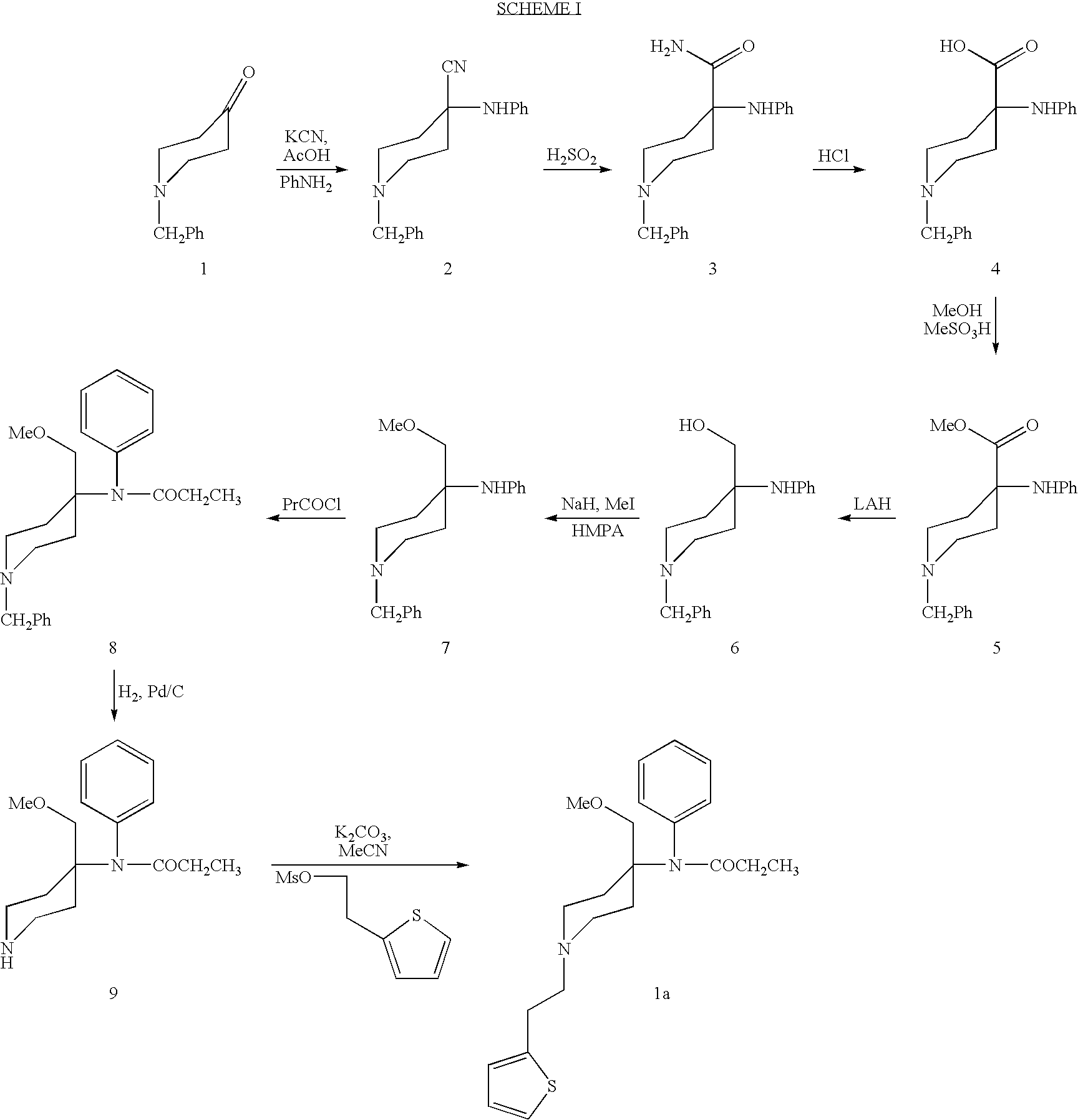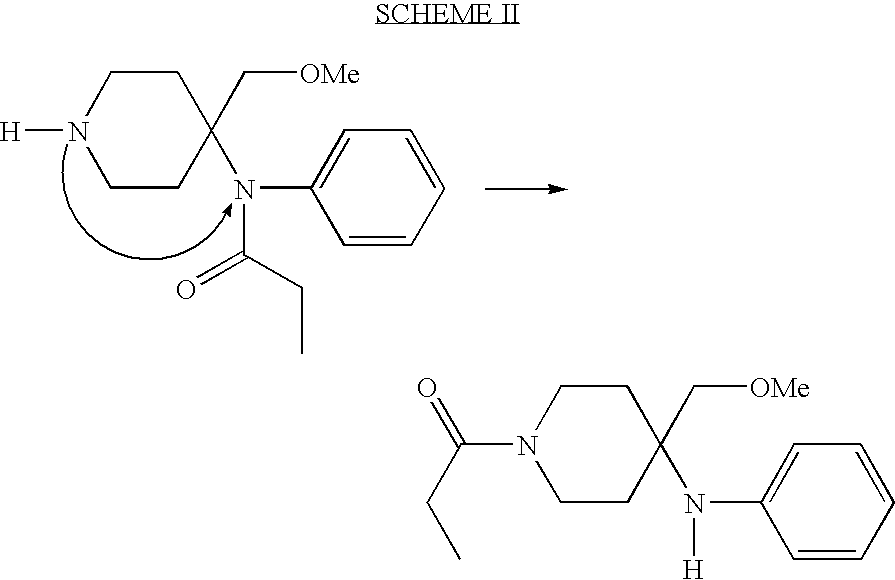New methods for the synthesis of alfentanil, sufentanil, and remifentanil
a technology of sufentanil and remifentanil, which is applied in the field of new methods for the synthesis of alfentanil, sufentanil, and remifentanil, which can solve the problems of inability to use the process described in the description is quite long and complicated, and the use of cyanide in the initial step is undesirabl
- Summary
- Abstract
- Description
- Claims
- Application Information
AI Technical Summary
Benefits of technology
Problems solved by technology
Method used
Image
Examples
example 1
Synthesis of Alfentanil by the Process Shown in Scheme III
[0041] Starting with 1-carbethoxy-4-piperidone, alfentanil is produced in about 16% yield in a 7 step reaction. These 7 steps are described here and again, in greater detail, in Example 6.
Step 1
[0042] As described in U.S. Pat. No. 5,489,689 which is incorporated herein by reference, 100 grams of N-carbethoxy-4-piperidone are treated to produce 98 grams of 1-(carbethoxy)-4-(phenylamino)-4-piperidinecarboxanilide. This product, shown as product 1 in Scheme III, is isolated as a white powder.
Step 2
[0043] It was established that 15-crown-5 was not required for this reaction due to the non-basic nature of the piperidine nitrogen which prevented quaternization side reactions with methyl iodide. Initial experiments with NaH in THF showed that the reaction of the anion with methyl iodide is best effected at room temperature. However, LC (liquid chromatography) monitoring showed that 12-16 hours of stirring at room temperature ...
example 2
Side Chain Synthesis
[0068] Alkylation of 1-ethyl-1,4-dihydro-5H-tetrazol-5-one with 1,2-dibromoethane (3 equivalents) in acetonitrile with triethyl amine (1 equivalent) as base is fast (1 hour). Excess halide is essential to minimize dimer formation. Crude isolated yield was 78-80% with GC purity of 85%. Up to about 10-11% of the isomer (O-alkylation) is also formed as evidenced by GC / MS study. It was hoped that less polar solvent such as THF will be used to minimize the extent of O-alkylation. Therefore several attempts were made to improve the yield for this reaction by reducing the amount of O-alkylation product formed. The results obtained with different bases and solvents are tabulated in Table 14. From these results it was concluded that triethyl amine / acetonitrile combination was the most desirable. The reaction is over after 1 hour of reflux. The reaction is:
TABLE 14Base%%%UsedSolventProductO-alkylationDimerNaHTHF515—Et3N:THF671614 Et3N:Acetonitrile84105K2CO3Acetonitrile7...
example 3
Major Impurities Identified in the Process
[0071] Two major impurities in the process were isolated by preparative TLC. One of them was assumed to arise from the alkylation of product 4 alcohol with the O-alkylated side-chain impurity to give polar impurity 1 with retention time of about 7. This was confirmed by a combination of LC / MS and detailed NMR analysis (proton, carbon-13 (APT), HMQC and HMBC. The second one was thought to arise from the alkylation of unreacted product 3 intermediate with the side chain to give the nonpolar impurity 2 with retention time of about 10 min. 45 sec. However, results from detailed NMR analysis indicate a rearranged product which has the same molecular weight as the one proposed earlier. Most likely 2 arises from alkylation of the rearranged amide 3 (arising from product 3 during Super Hydride® reduction) with the side chain (Scheme V). This amide 3 once detailed NMR analysis indicate a rearranged product which has the same molecular weight as the ...
PUM
 Login to View More
Login to View More Abstract
Description
Claims
Application Information
 Login to View More
Login to View More - R&D
- Intellectual Property
- Life Sciences
- Materials
- Tech Scout
- Unparalleled Data Quality
- Higher Quality Content
- 60% Fewer Hallucinations
Browse by: Latest US Patents, China's latest patents, Technical Efficacy Thesaurus, Application Domain, Technology Topic, Popular Technical Reports.
© 2025 PatSnap. All rights reserved.Legal|Privacy policy|Modern Slavery Act Transparency Statement|Sitemap|About US| Contact US: help@patsnap.com



